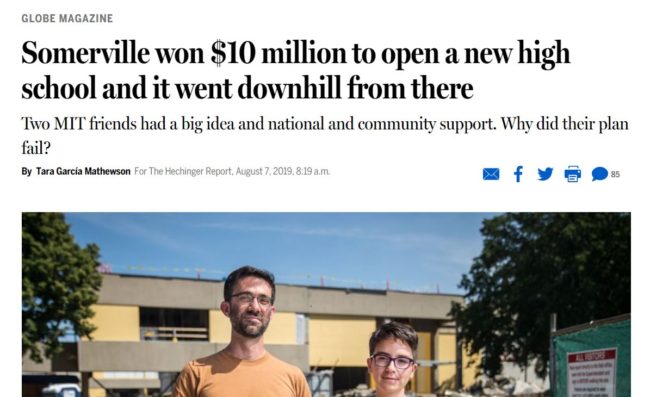08.08.19Confusing “Innovative” and “Effective”

Read this story on Michael Goldstein’s recommendation.
(Rule of thumb: If Mike says it’s good, read it.)The article describes founder of a proposed new school in Somerville where kids would learn through projects that they designed and would learn what they wanted. It got voted down. The article says, “The plan pulls from best practices in school innovation from all over the country,” but actually that’s not true. Their plan pulled from innovative–and often flawed–IDEAS… shiny but not always what outcomes bear out as effective. Curriculum actually matters a lot. Knowledge matters a lot. Research is pretty clear that project based learning is beneficial if you are an expert. If you are not, direct instruction is more effective. Far more so. College is a good time to decide what you want to study and do projects on. High school? Well, look at the data on Somerville’s students. They’re probably not ready for instruction as experts yet.
In other words, the definition of ‘proven’ is pretty questionable here as many of the things they suggest doing operate in direct contrast to research on learning.
This is a common journalism trope though. The article valorizes the school because it was ‘innovative’ but does not appear to consider that saying no might be valid because the district decided it would likely prove unsuccessful. Is it legitimate to do that? Probably. People LOVE to romanticize innovation but forget that most innovation fails. The thing we want is good schools; if innovation doesn’t get us there, it’s not so shiny.
And $10M chasing a bad idea–with all kinds of legacy costs–is still not a win if the school educates students poorly.
Of course you might disagree with my assessment of the school, but it’s hard not to notice that the article never seems to consider that the decision to reject it might be a considered choice about how to allocate scarce resources that determined that something risky and unproven was, well, risky and unproven.